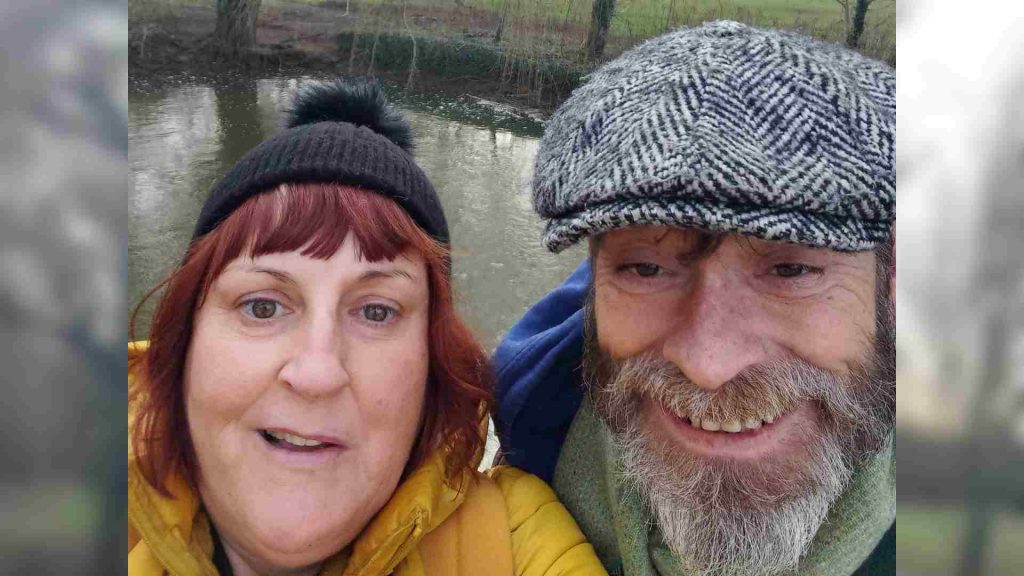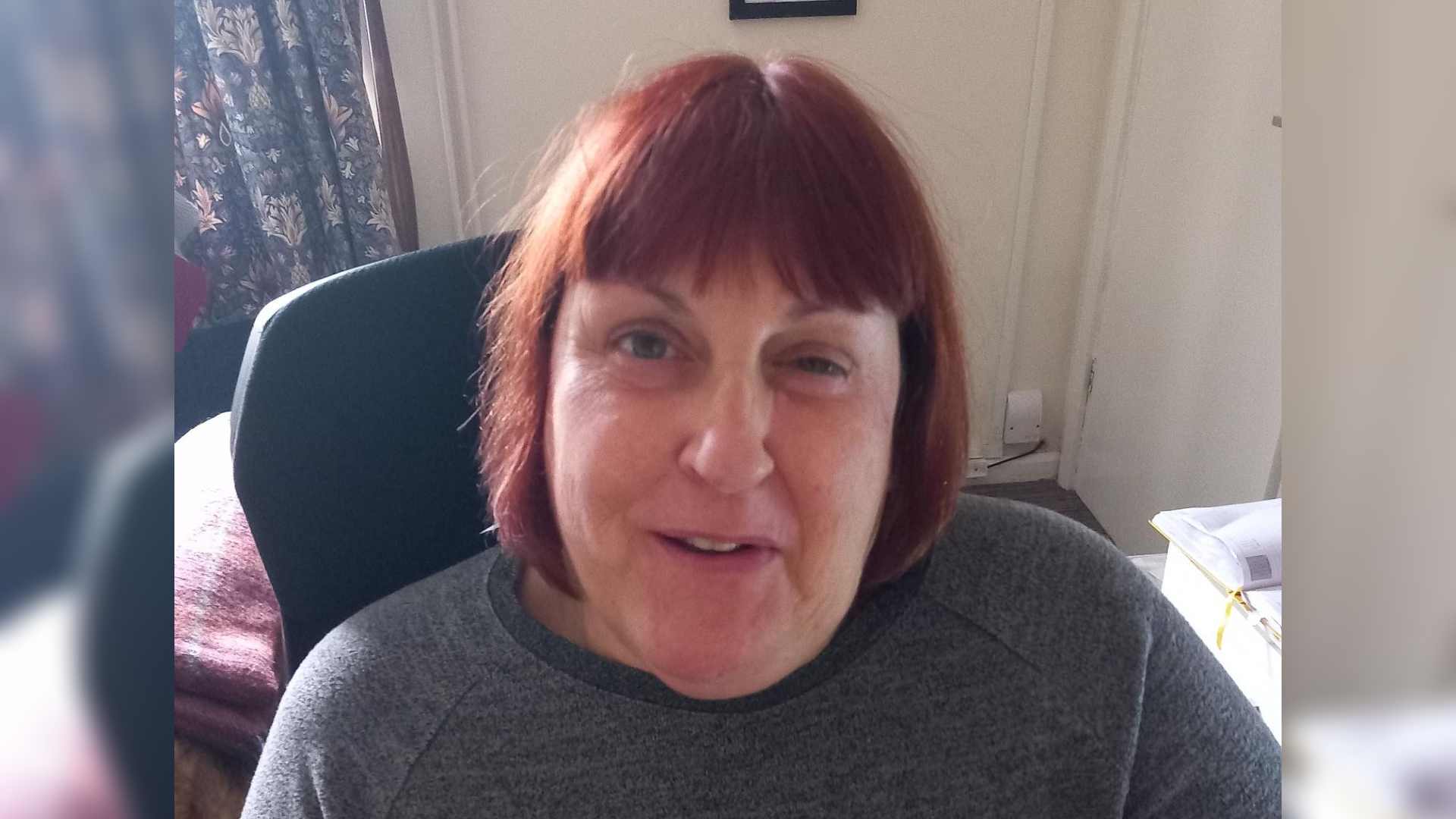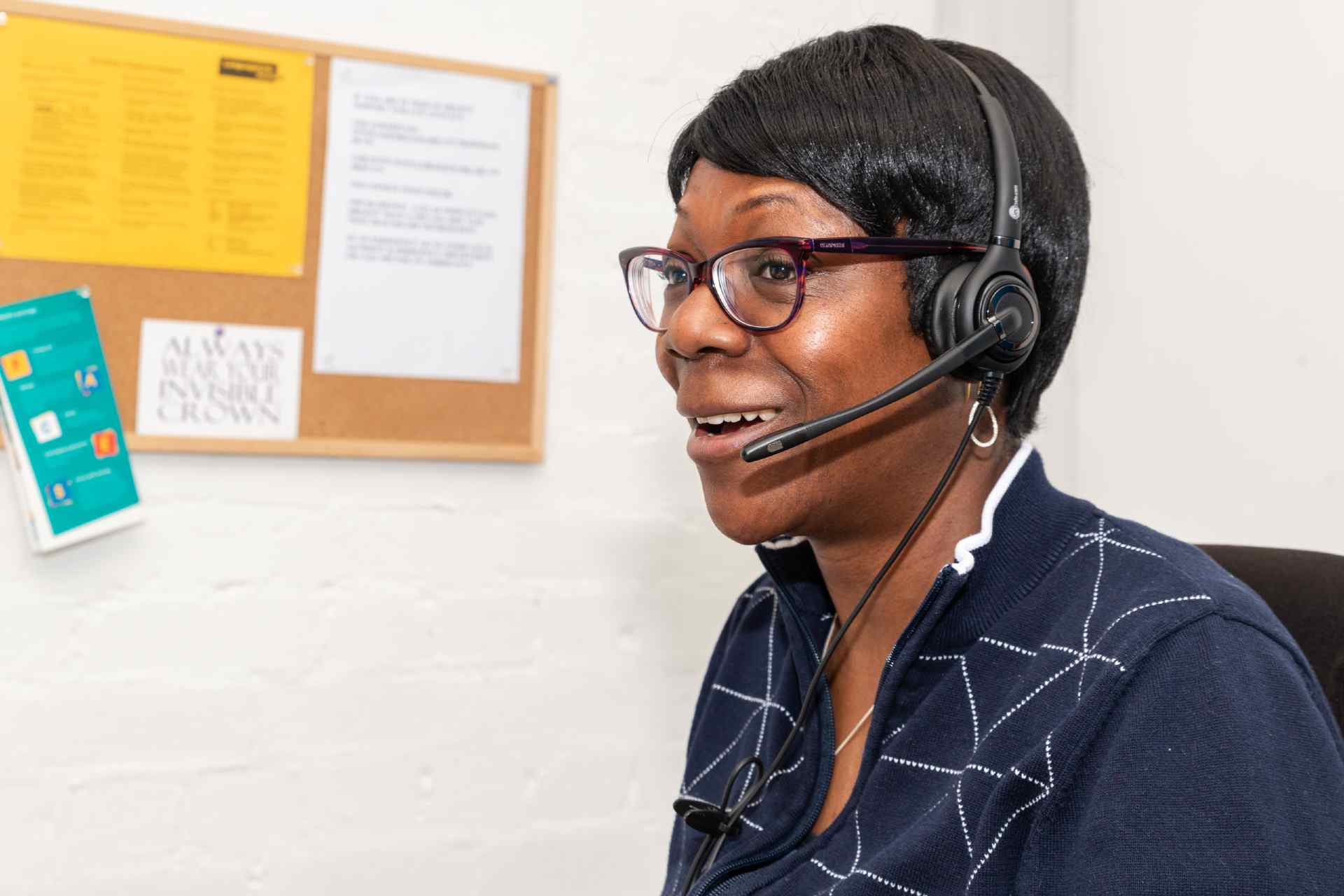My name is Tracy and I have a left sided Bell’s Palsy that came on suddenly in September 2020. It has affected my left eye, ear, nose, cheek and mouth. I also have synkinesis, which is where the damaged nerves re-wire incorrectly, so for example, when I try to puff out my cheeks, my left eye closes.
I am starting to get used to the “new me” but some days are better than others. I still don’t like being in photos, as I think I look “wonky”. For a long time, I wouldn’t go out to eat, as I dribble and spit food due to the tightness and nerve damage in my face, so felt really embarrassed. I also have to use really small cutlery!
My work involves running online workshops, and my confidence was really badly affected, because not only could I see this different me on the screen, but I knew I sounded different too. I felt like I had to explain at the start of every workshop that I wasn’t winking at people (because at the beginning, only my good eye would close when I blinked), I wasn’t drunk if I started slurring or dribbling, I wasn’t crying when my eye ran and I needed to keep putting drops in. My sense of humour took over and I tended to make a joke of these things as a way of coping – I still do to a certain extent.
It would be great if more healthcare professionals were aware of the support available, so others like me can get the help they need.
I was always aware of people staring – even if they weren’t – but this concern has eased, as the facial therapy and medical Botox has started to balance things out. However, I still look asymmetrical and felt that people would pick up on that, resulting in staring or people looking sympathetically at me. Some days I could cope and brush it off, but other times it really got to me, and I wanted to either hide or shout, “what are you staring at!?”
That’s why I decided to seek support from Changing Faces. The 12 weeks of one-to-one counselling I received made such a difference to how I felt about myself, as well as what I felt about other people’s reactions. I was going through a particularly difficult period, with other health issues as well as housing problems, so it came at just the right time. I started to look forward to the weekly sessions. It was my space to talk with no judgements, and a time to focus on how to move forward.
I did experience huge imposter syndrome. Why should I get counselling and support when there were so many people who were much “worse” than me? However, the practitioner gave me the space to reflect, think and plan how to deal with situations and not to feel guilty about needing support.
Once I started to look a bit more “normal”, I felt bad that I was making such a fuss. People were saying “oh wow, you look great, glad the palsy has gone”, but it hadn’t! I was still in pain, struggling to eat without biting my lip every time and having toxins injected into my face. I really don’t think I would have got through last year without the support.

Tracy on a walk with her husband
Now I think about things so differently, in a much more positive way, and am starting to live with the “new me”. I never thought I would feel this positive. If you’d spoken to me three and a half years ago, I would have said “got out of bed” as my main achievement!
Even though I still get a bit cross when people compliment me on how good I look, I think that they’re only stating what they are seeing, and they are trying to be kind. I’ve started to accept myself – I even quite like my wonky smile. It’s me, and although I wish I could whistle and raise my eyebrows at times, I have started back at my choir group and am loving singing again.
I wish there was more awareness about visible difference, so those with felt less alone and those without had better understanding. I only knew about Changing Faces because my NHS therapist told me about it. I had to tell my GP that the service existed, because they’d never heard of it. It would be great if more healthcare professionals were aware of the support available, so others like me can get the help they need.
I would say to people struggling with life with a visible difference, get help, don’t hide away and suffer in silence, as there are loads of people out there who can support you. And don’t feel guilty for having bad days, we all have them.

